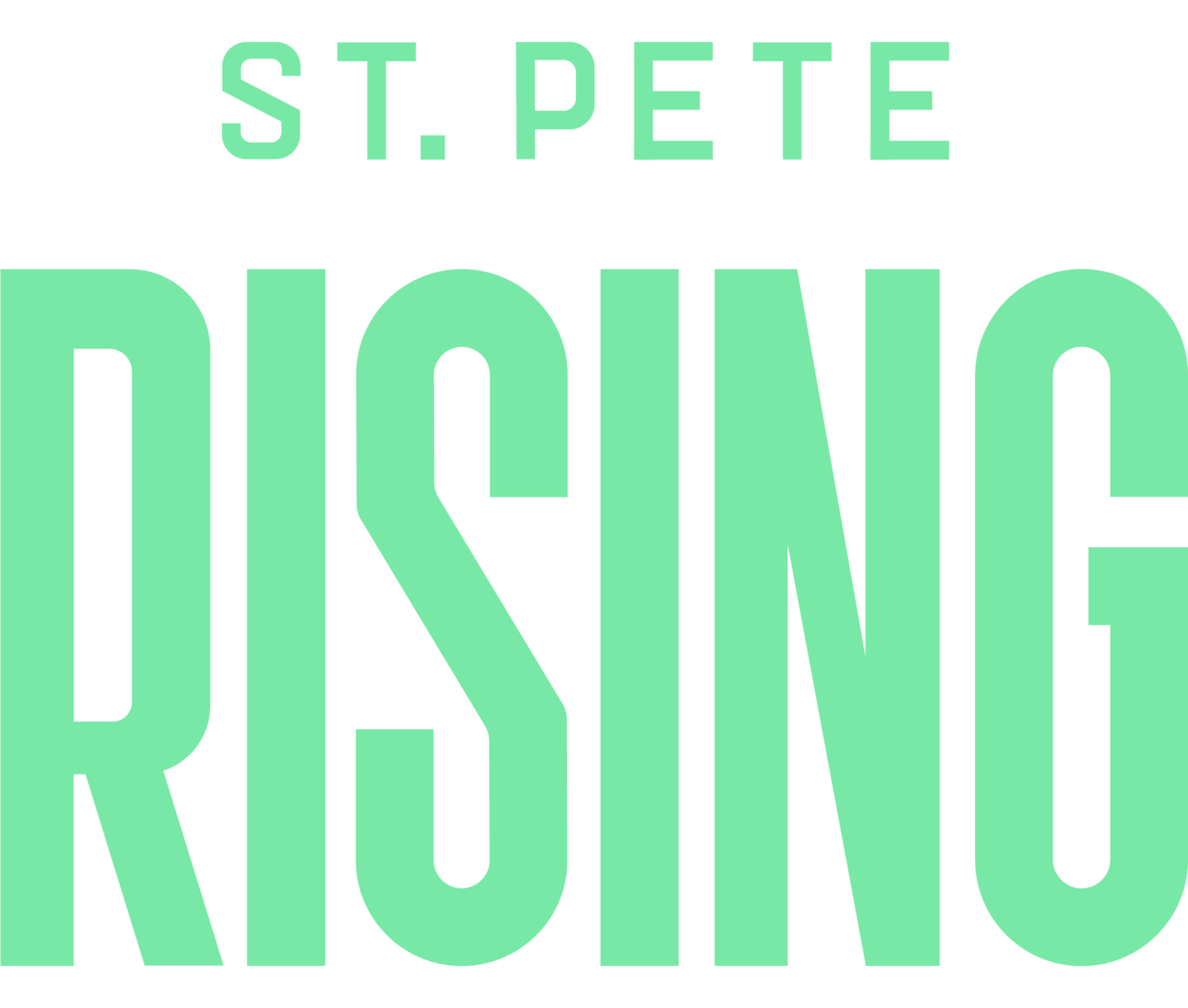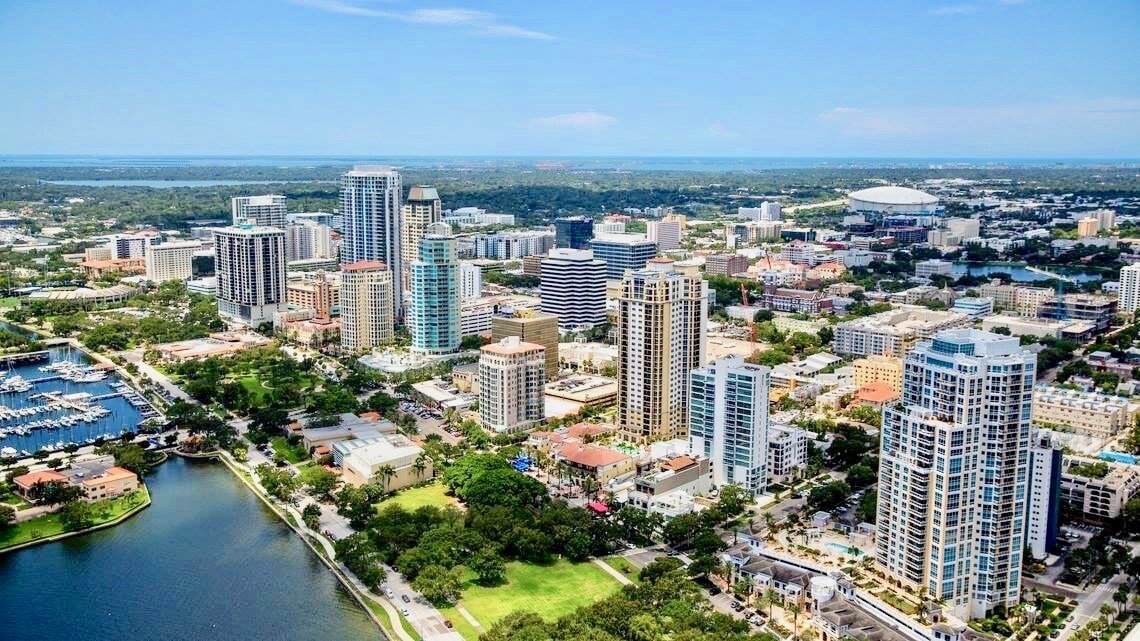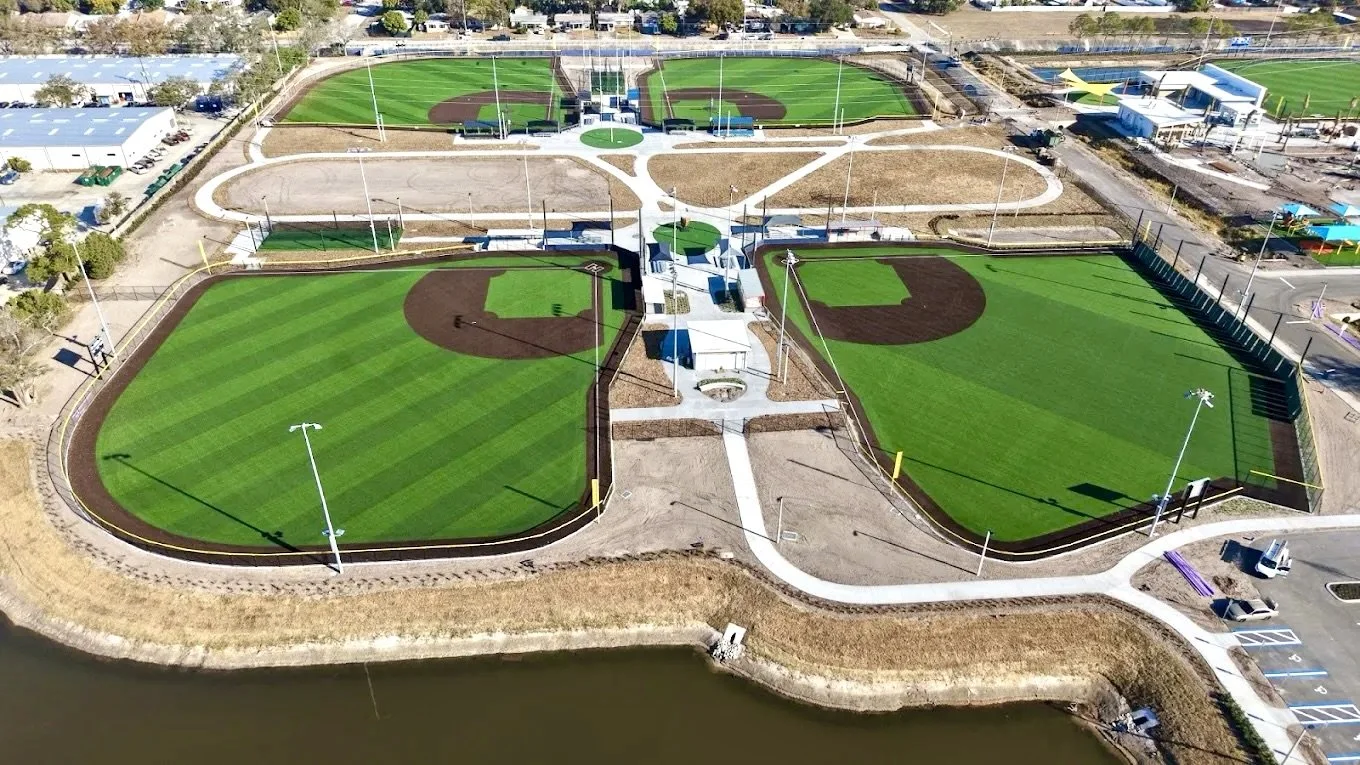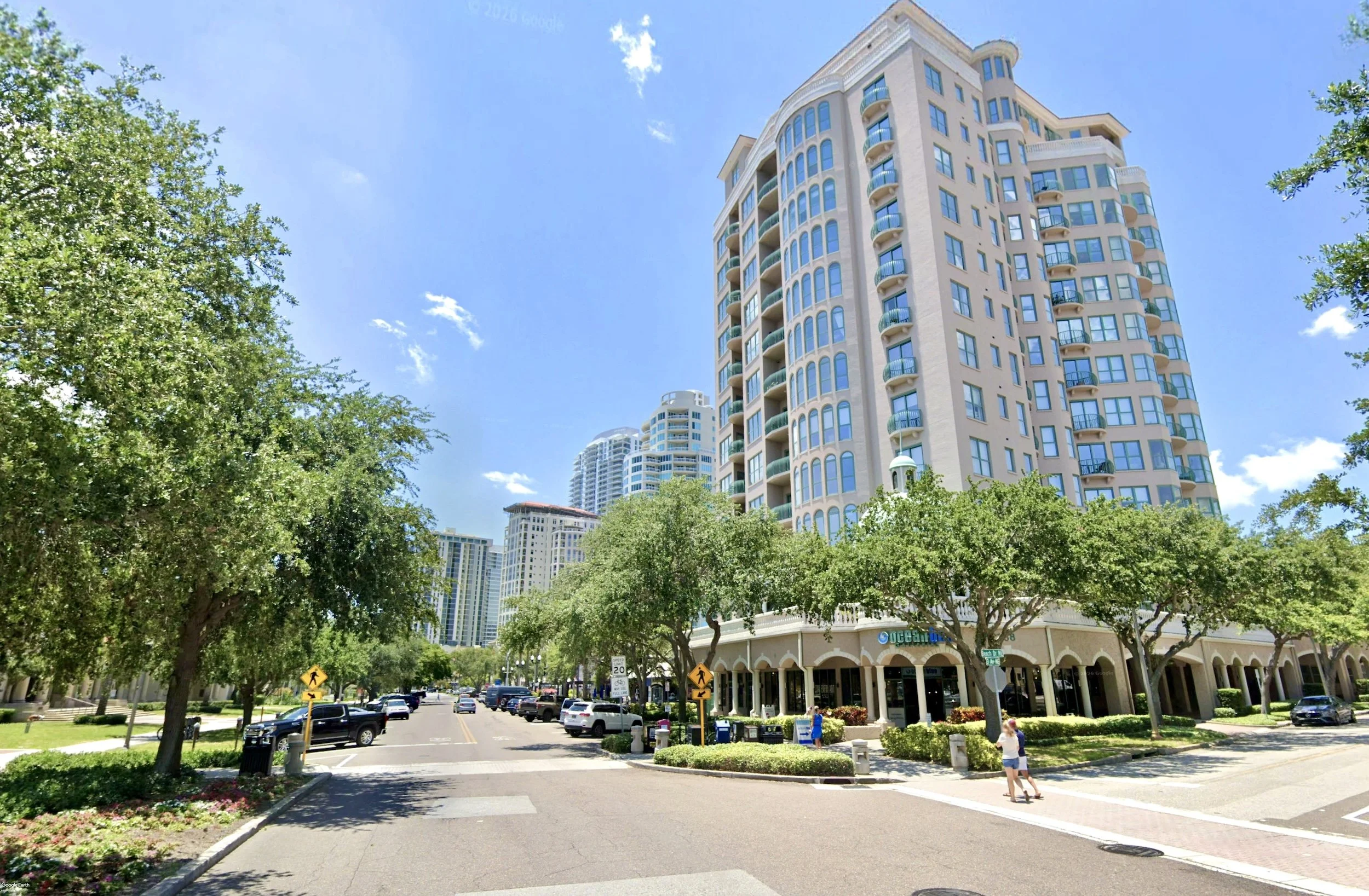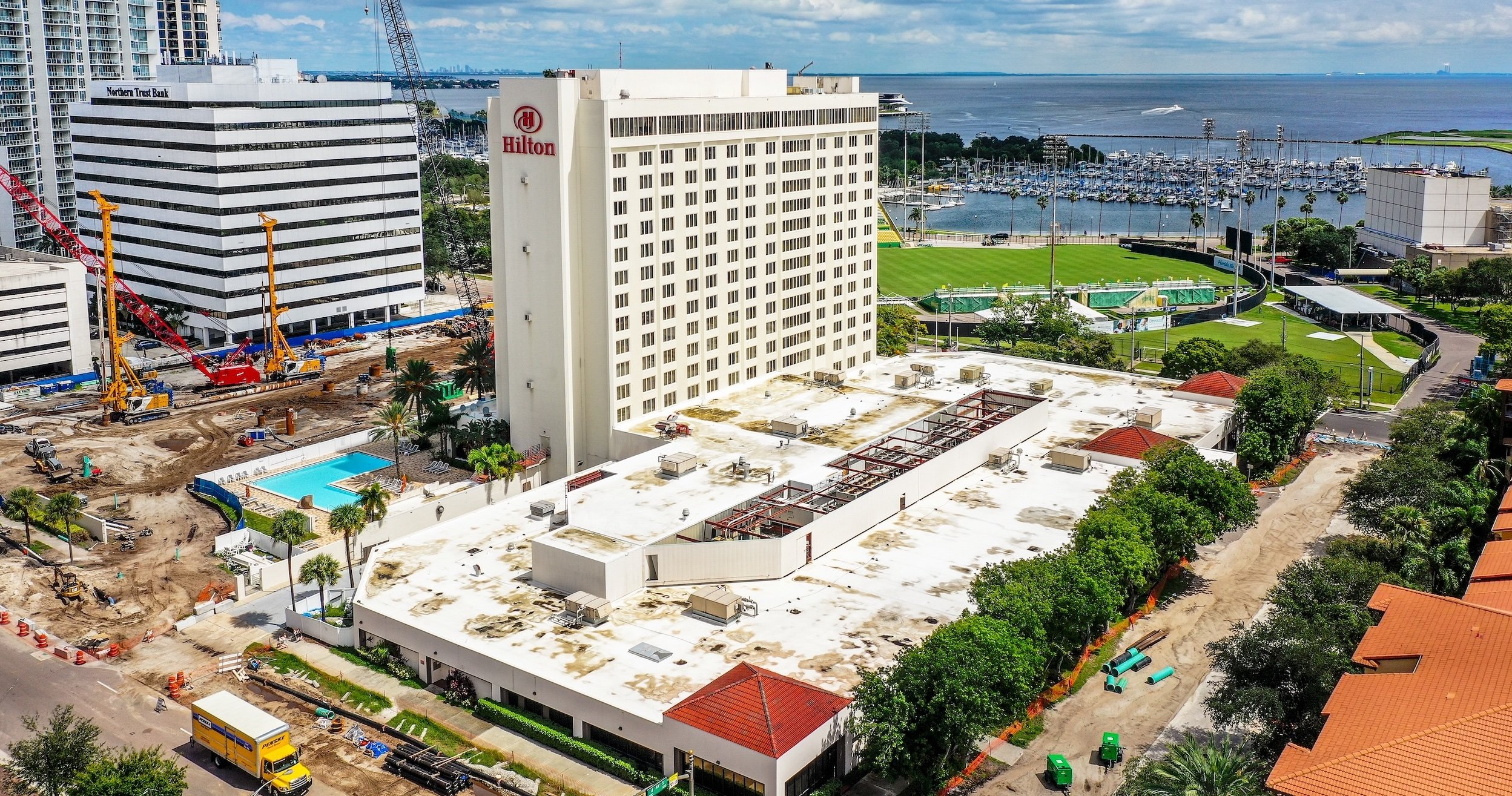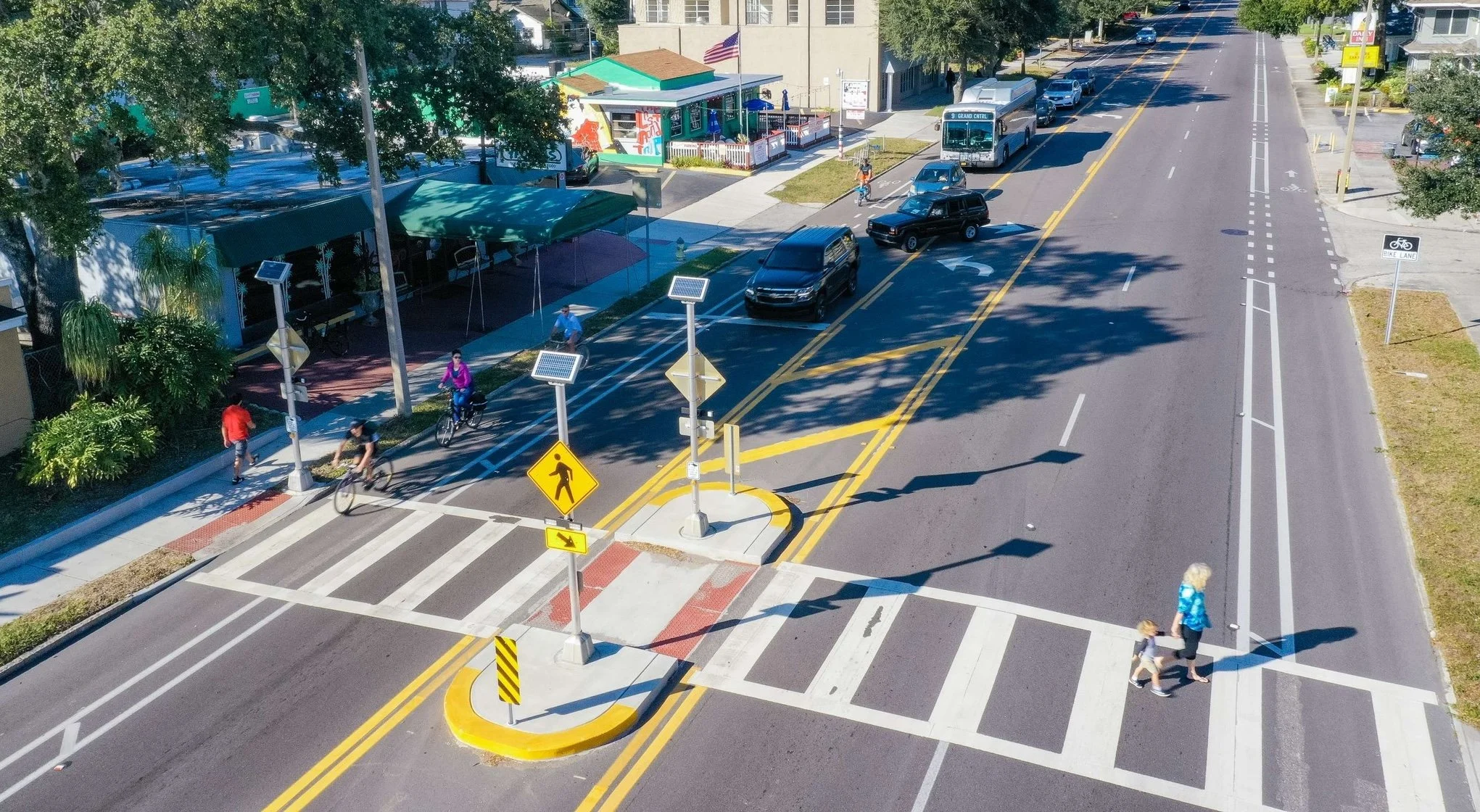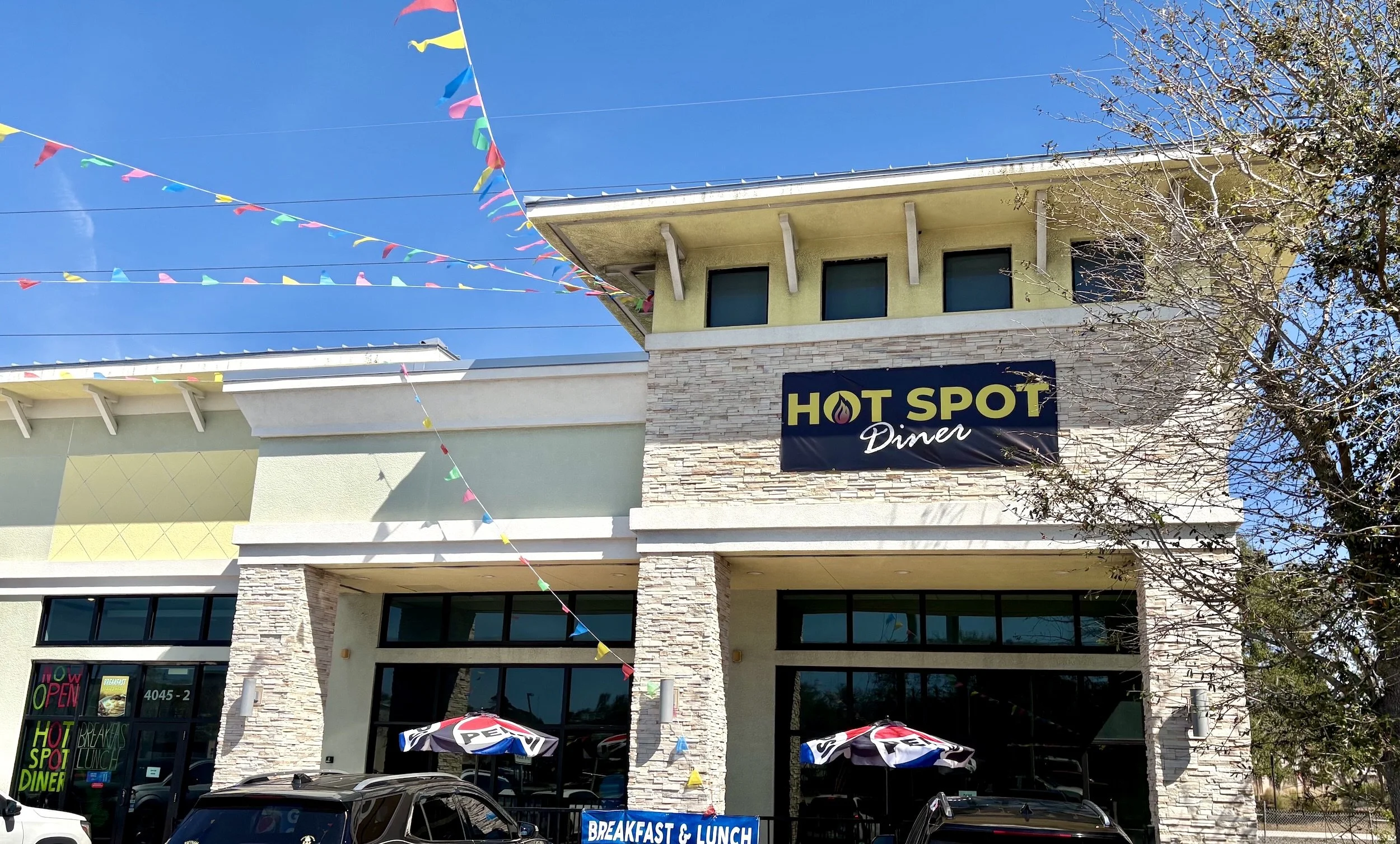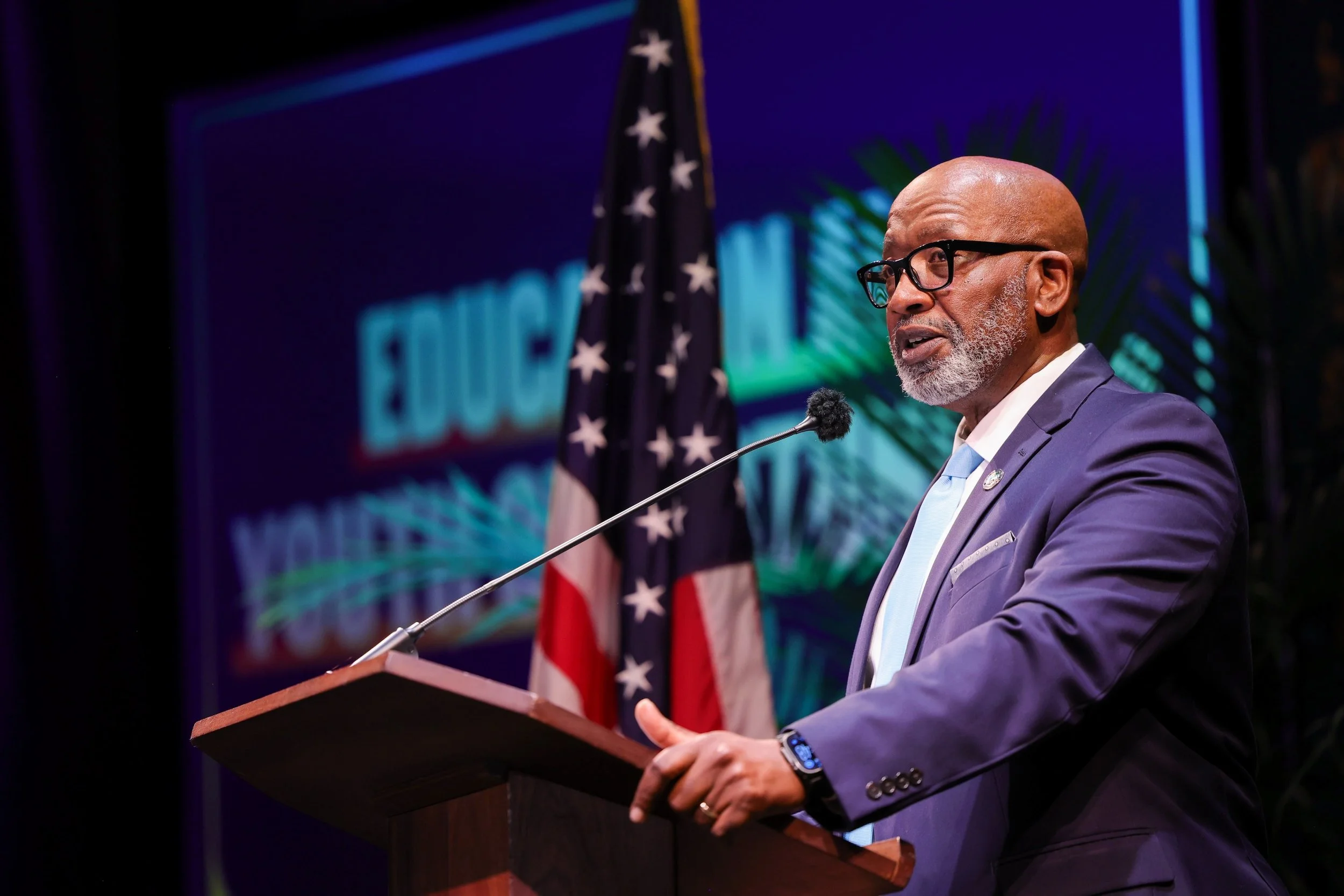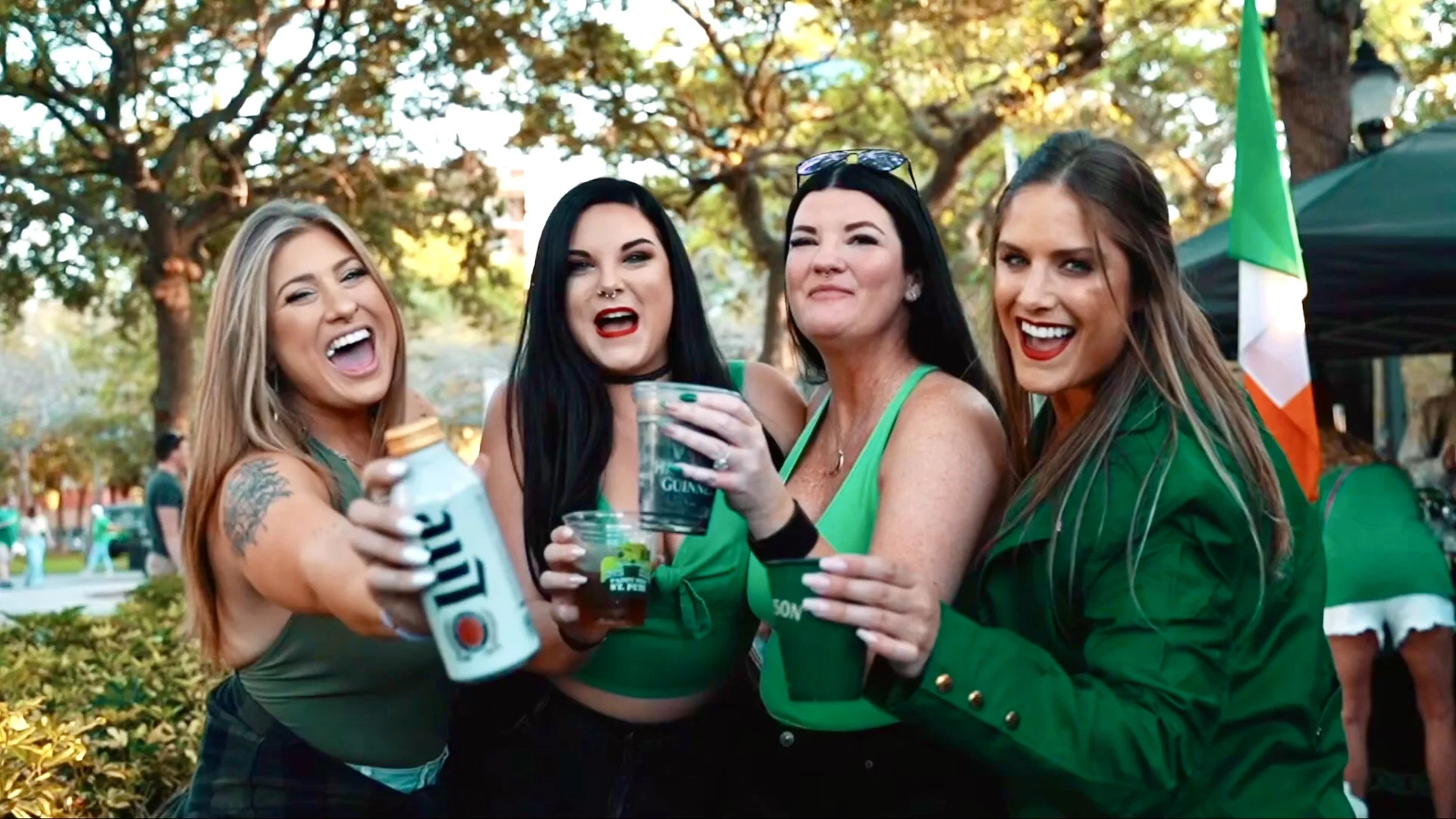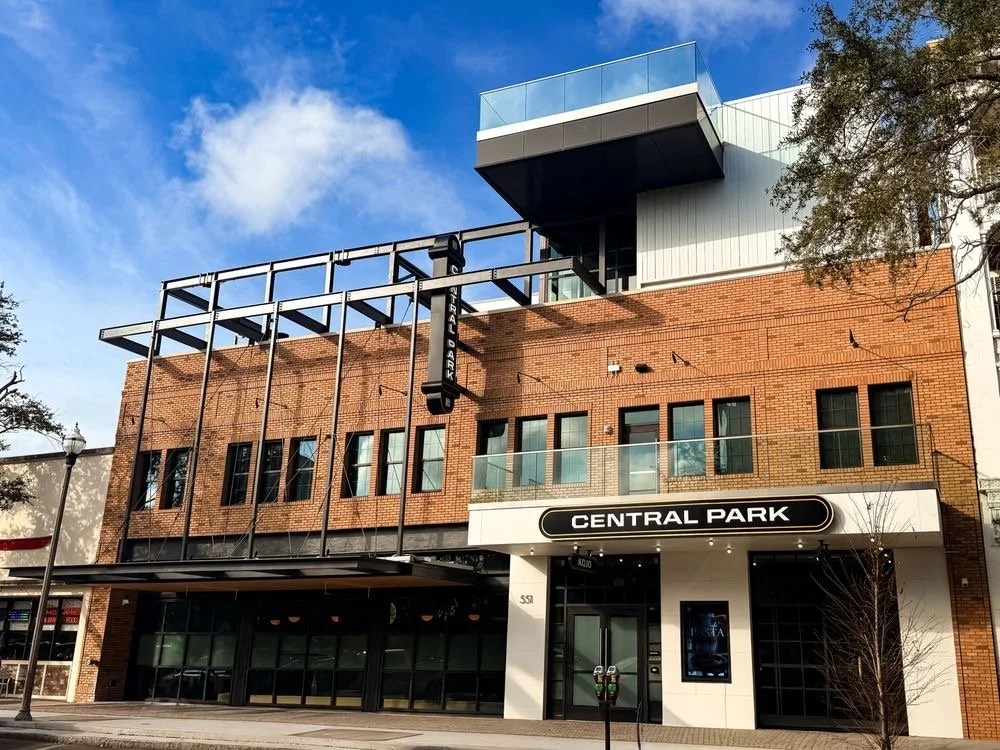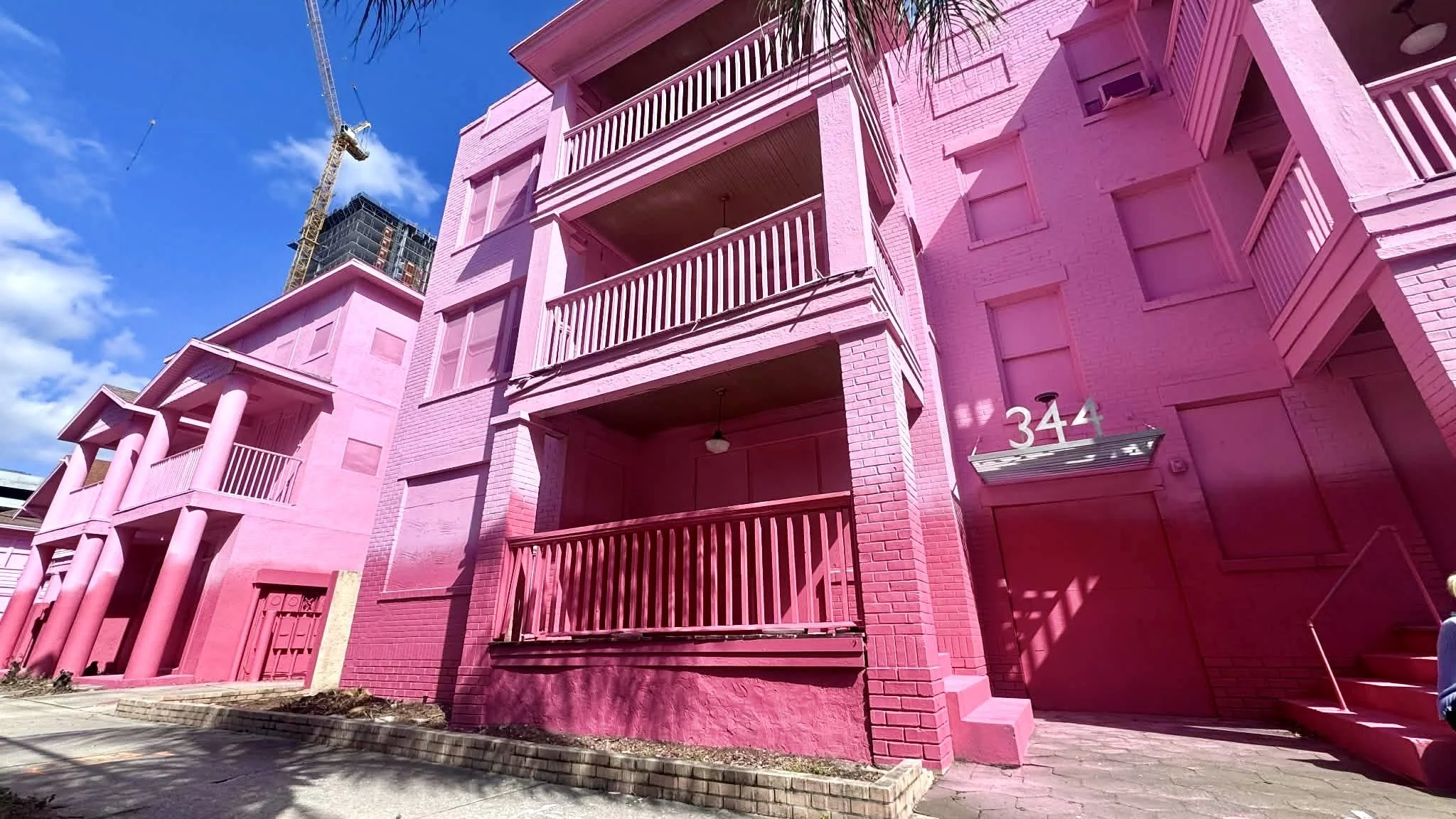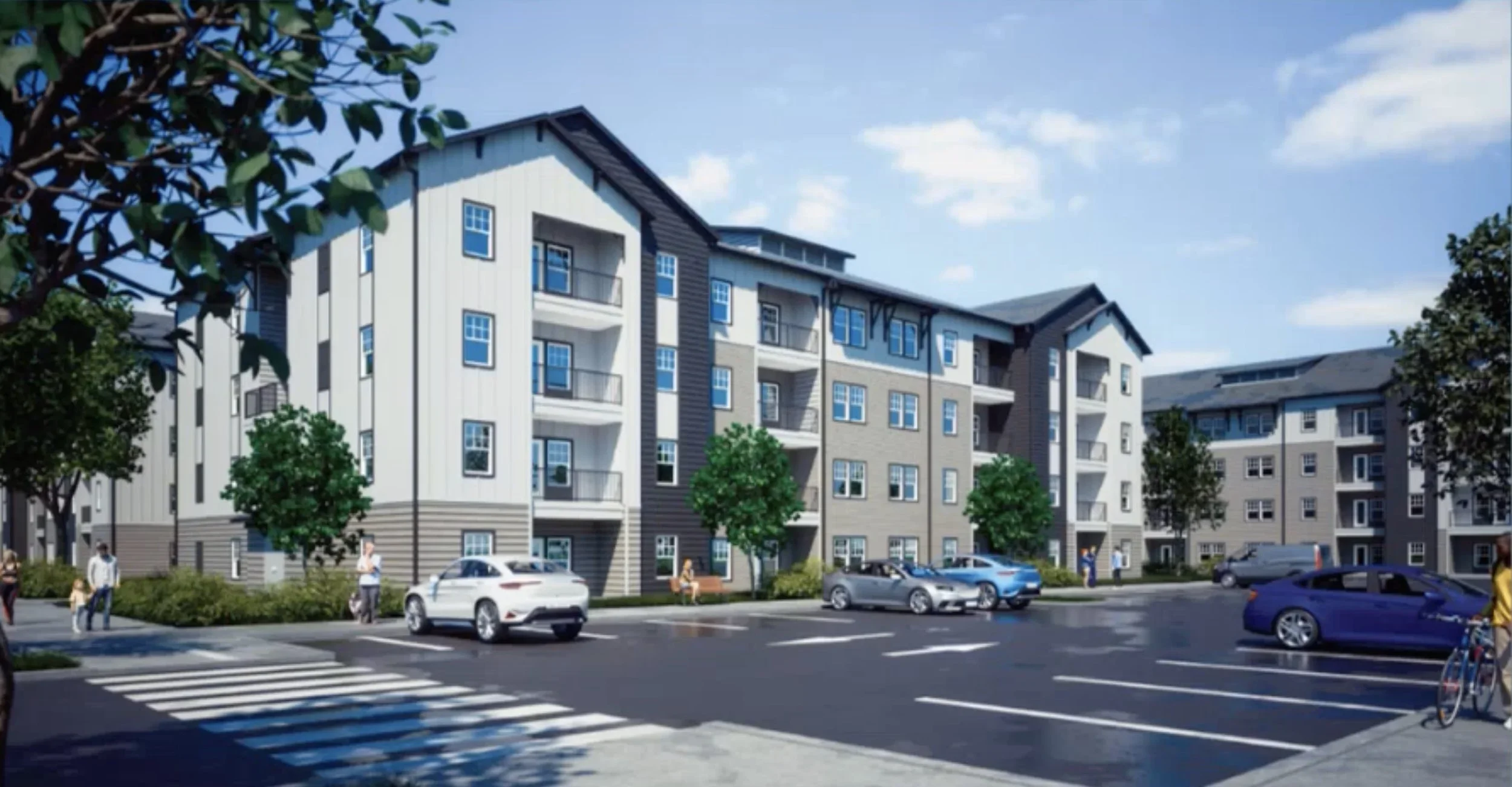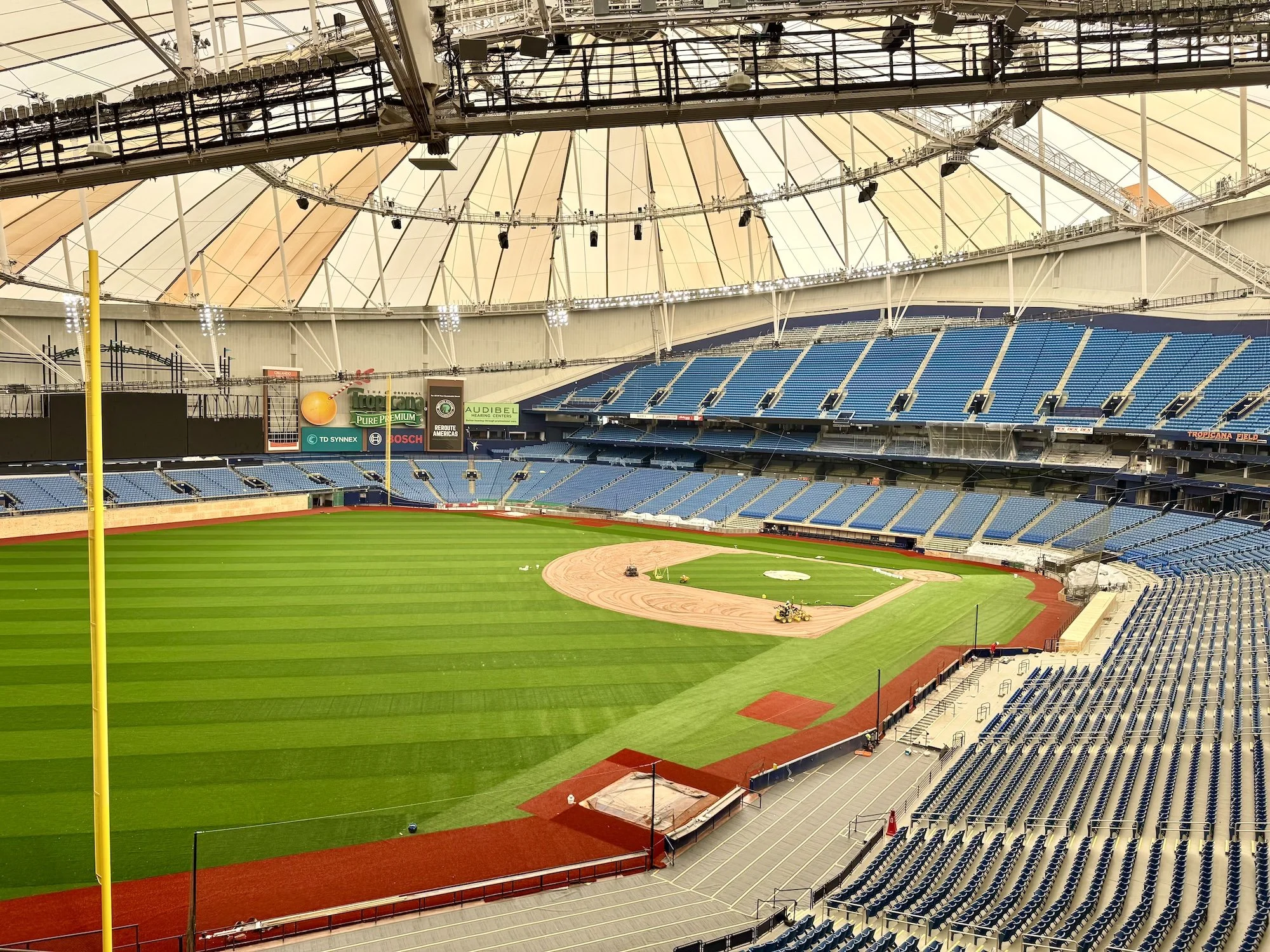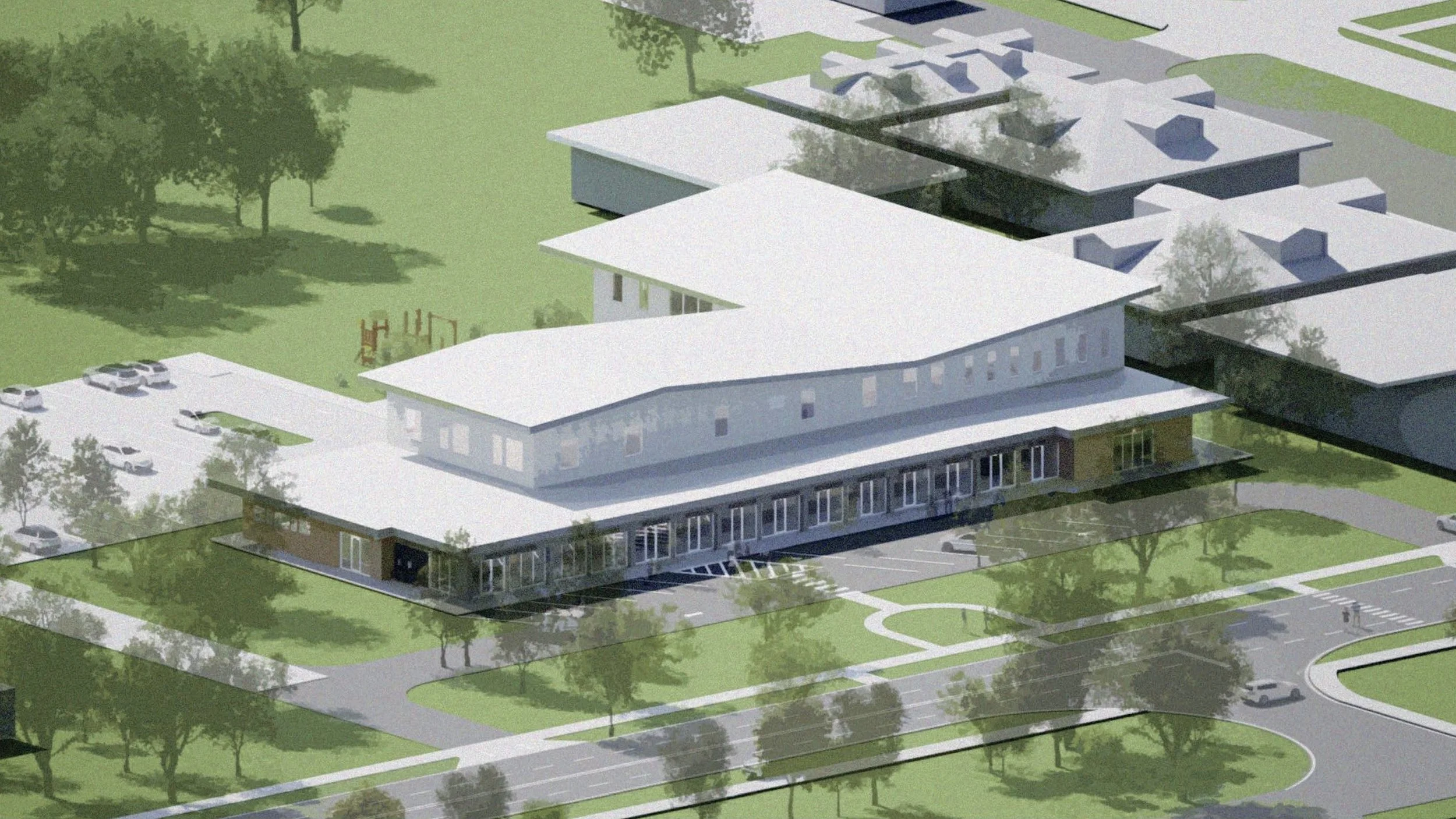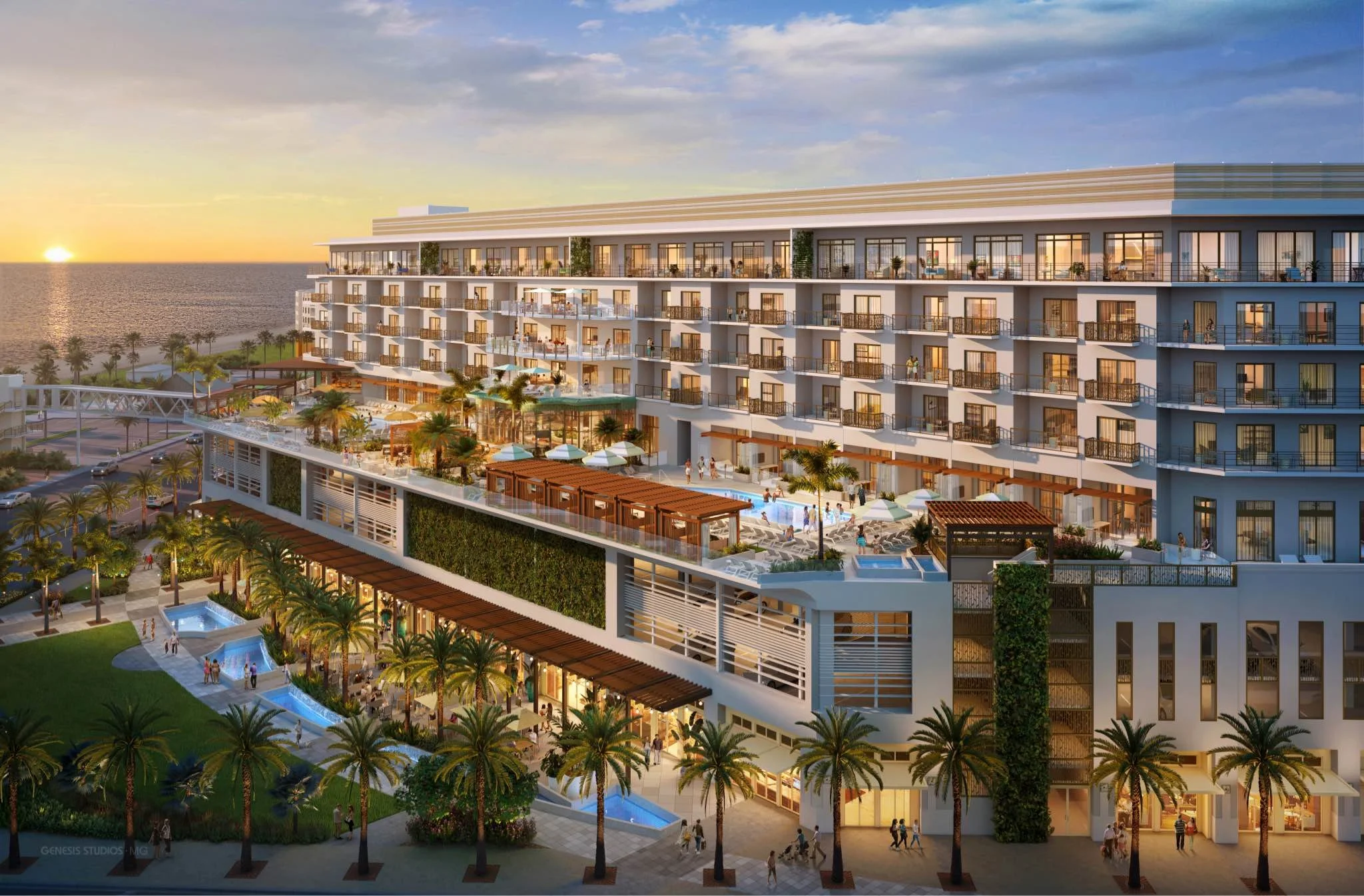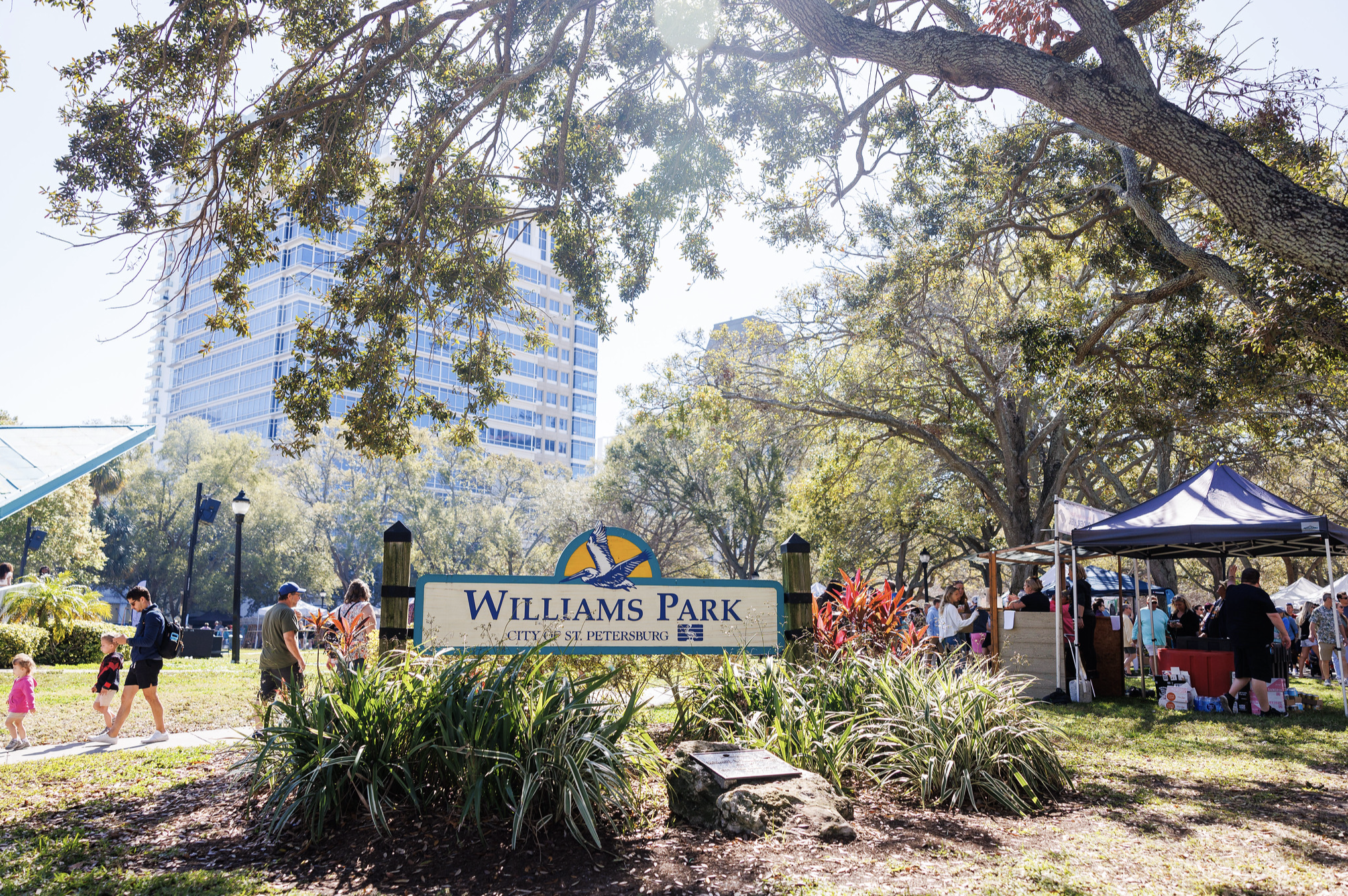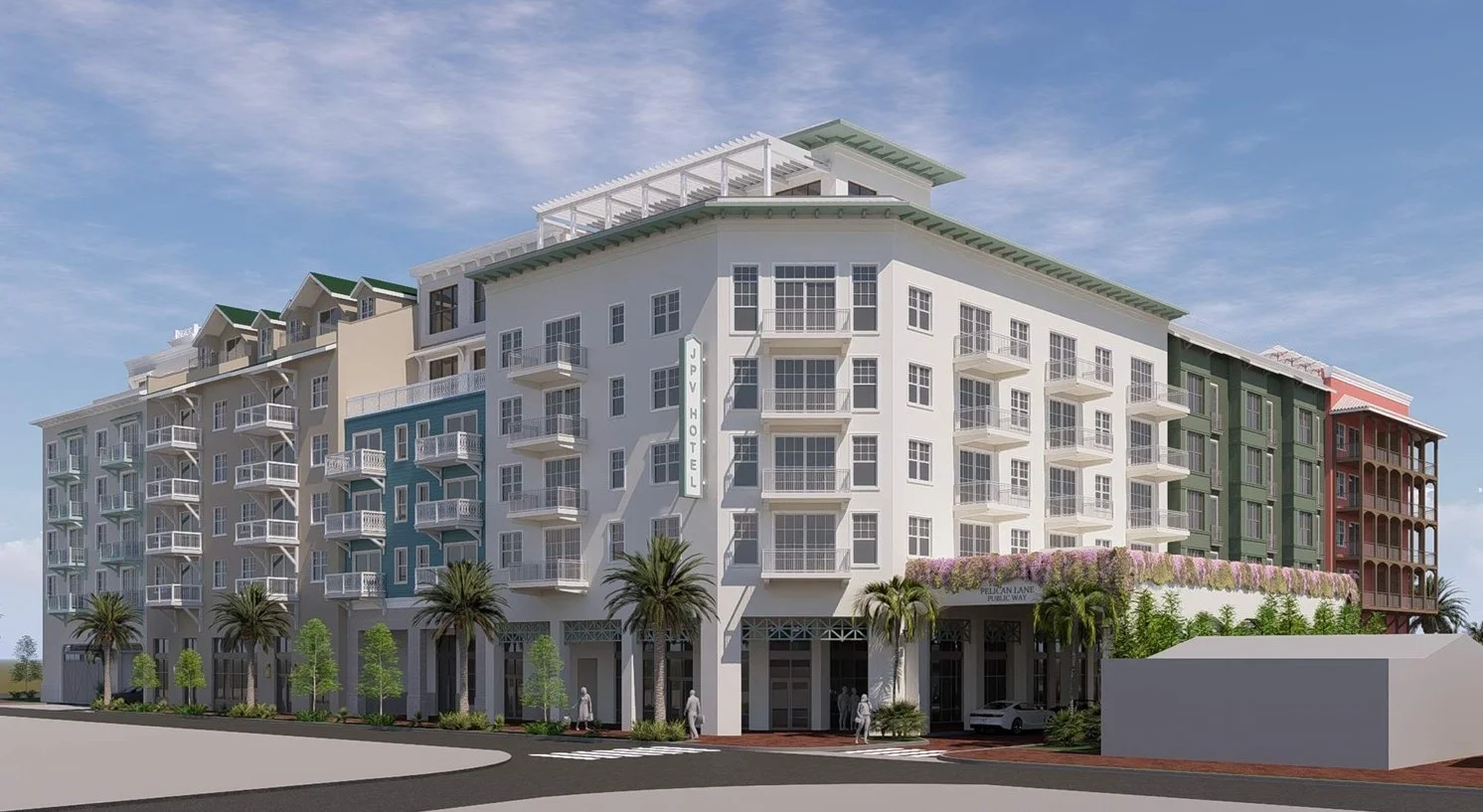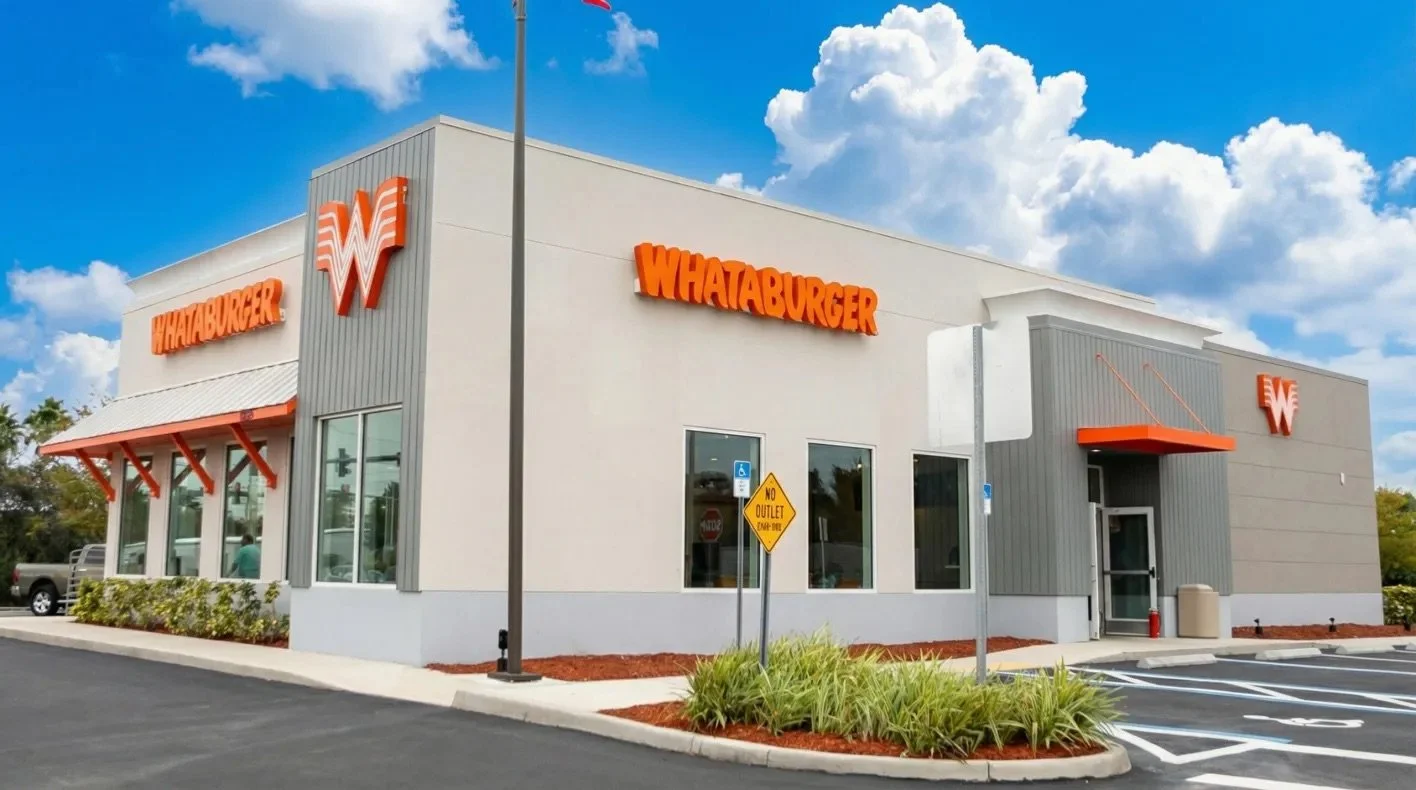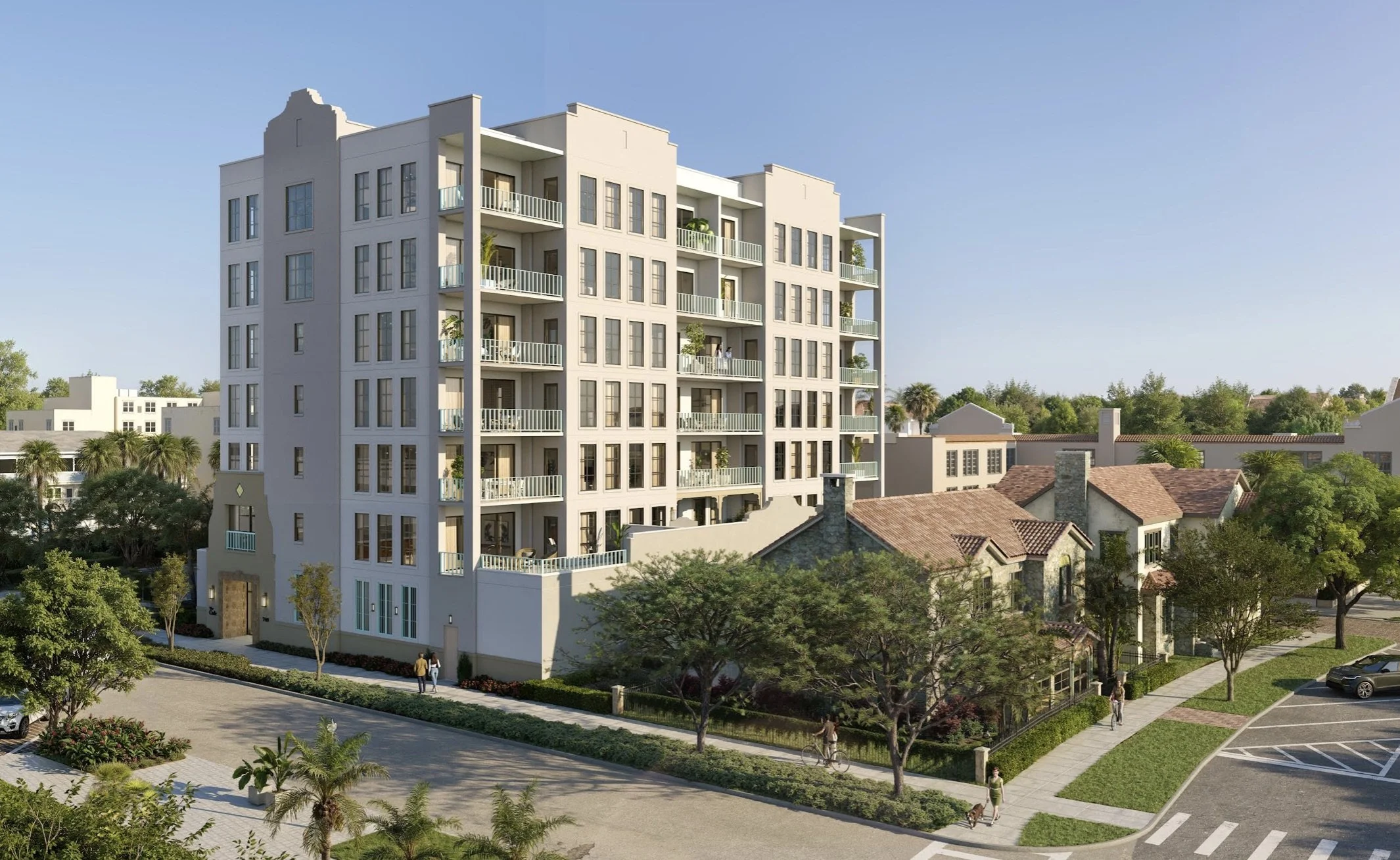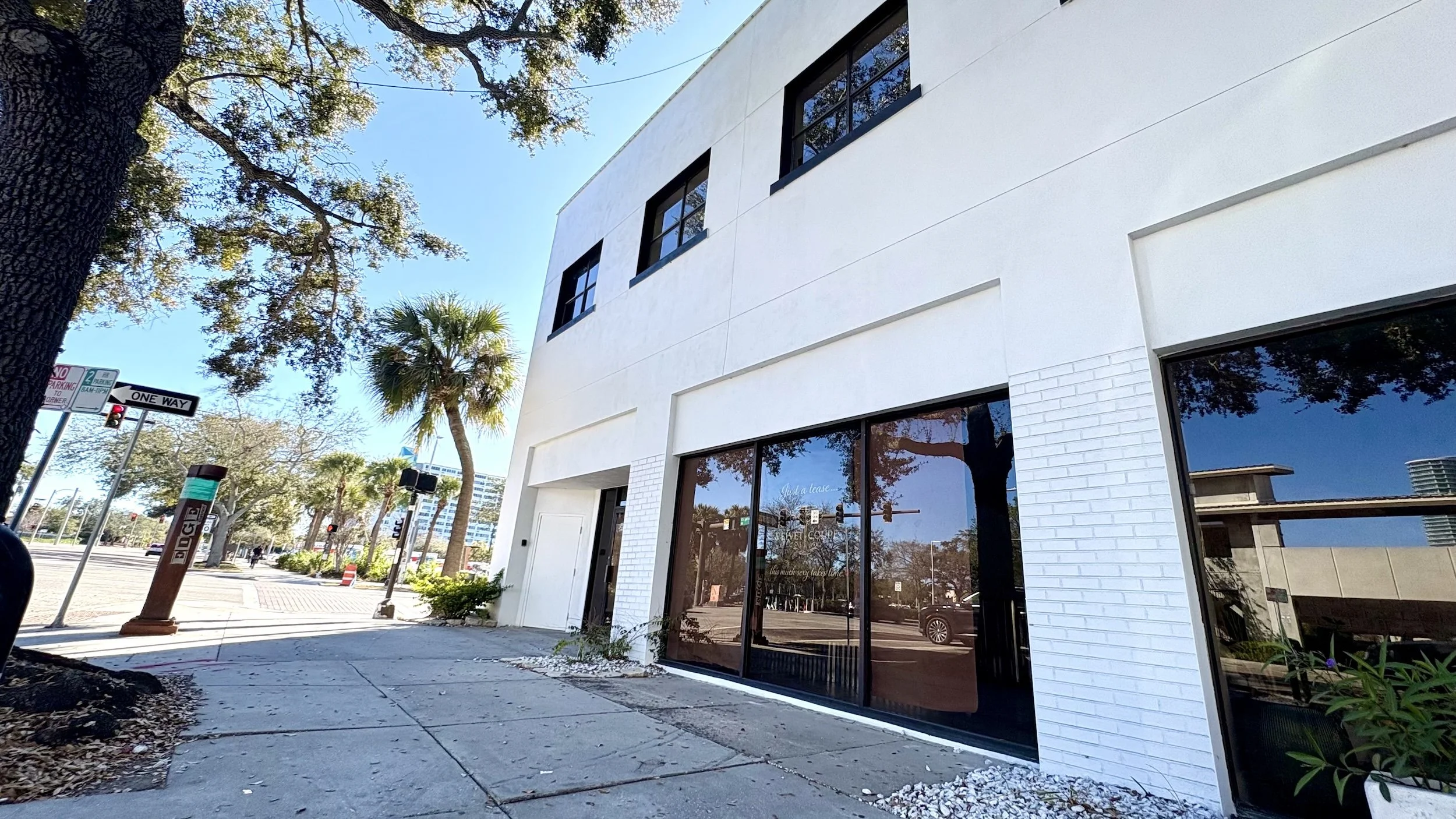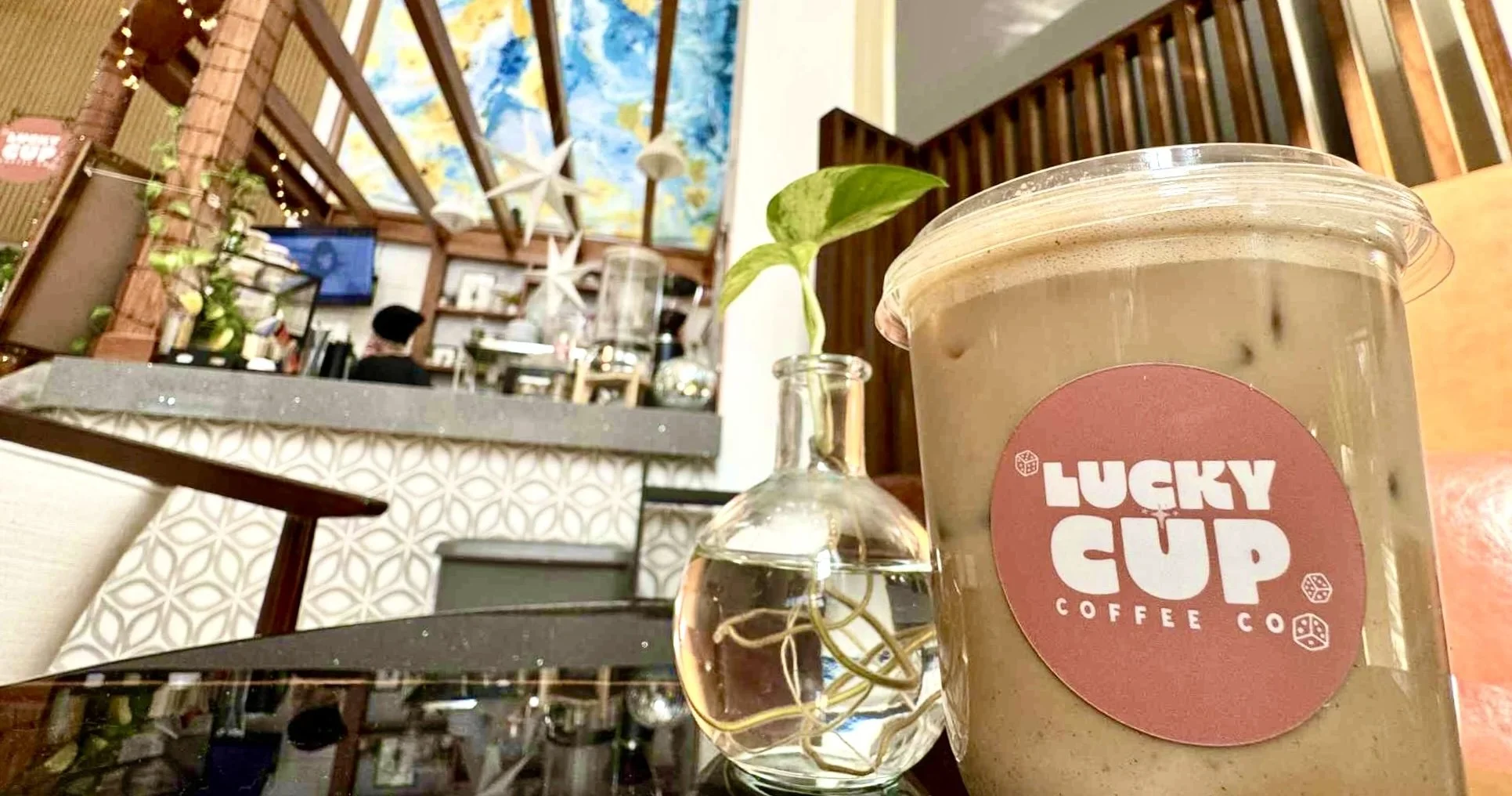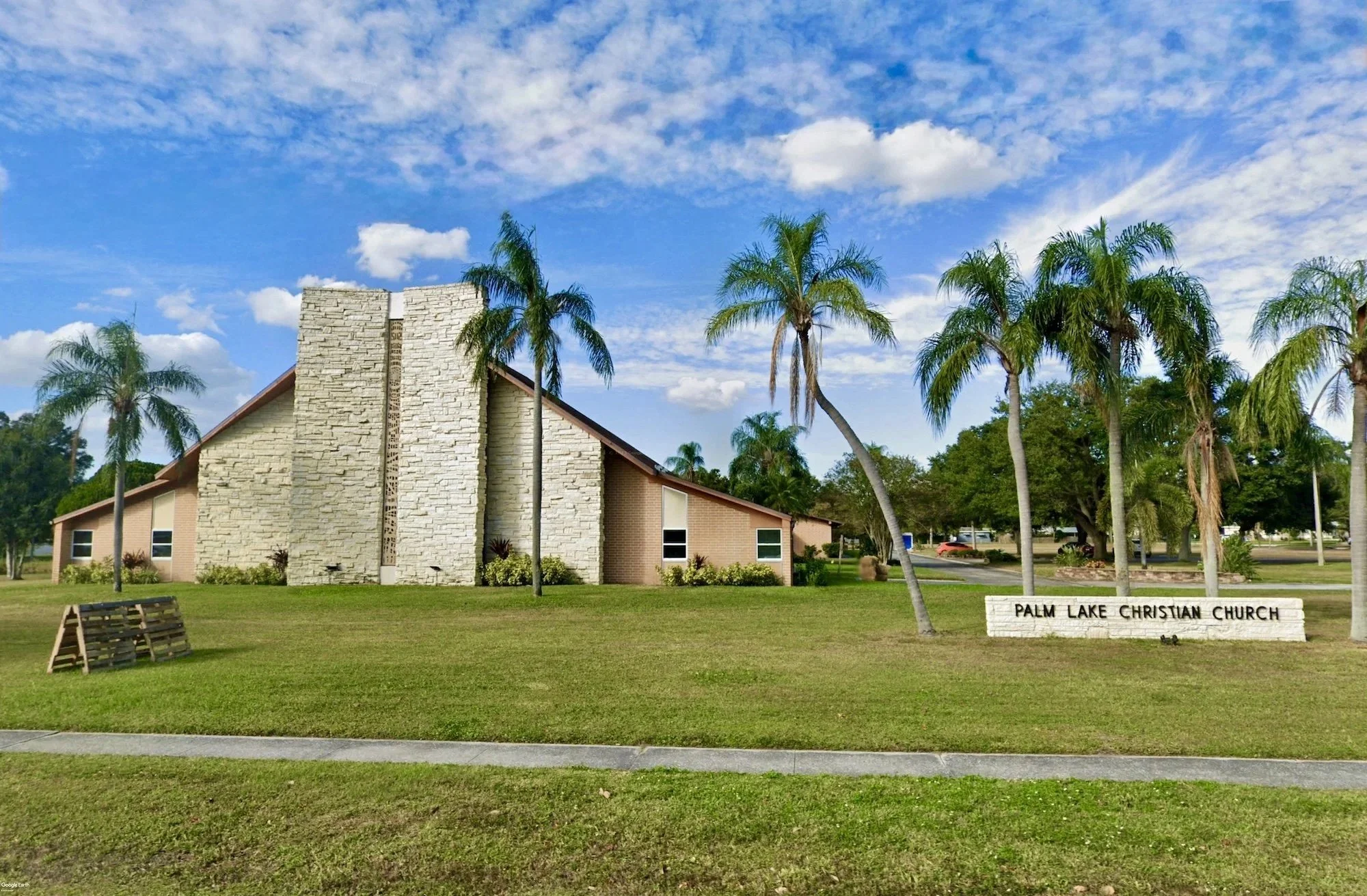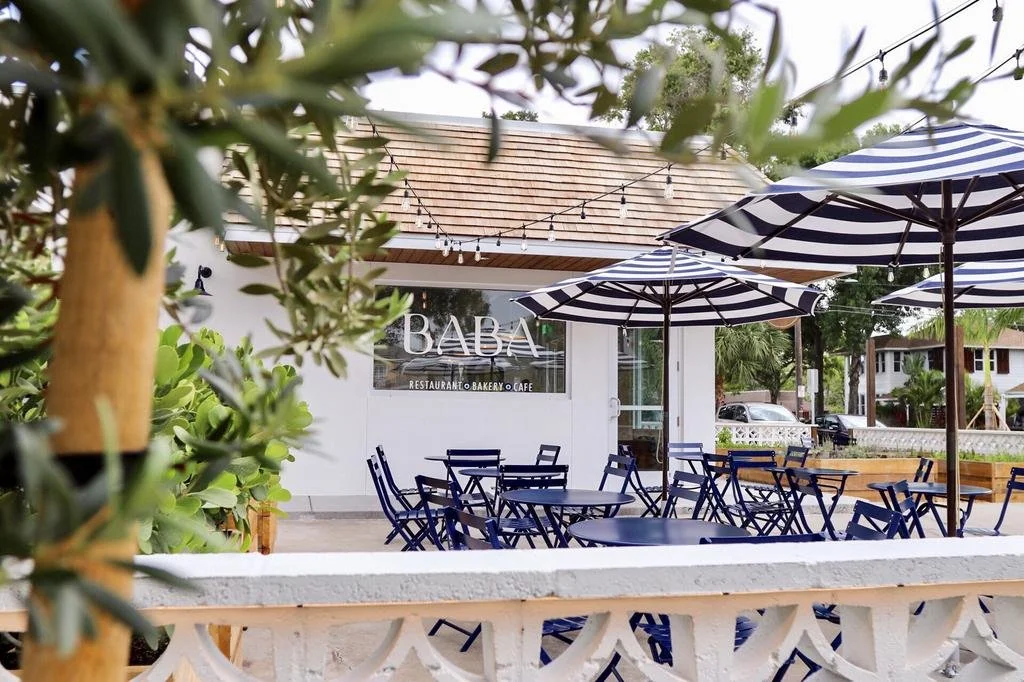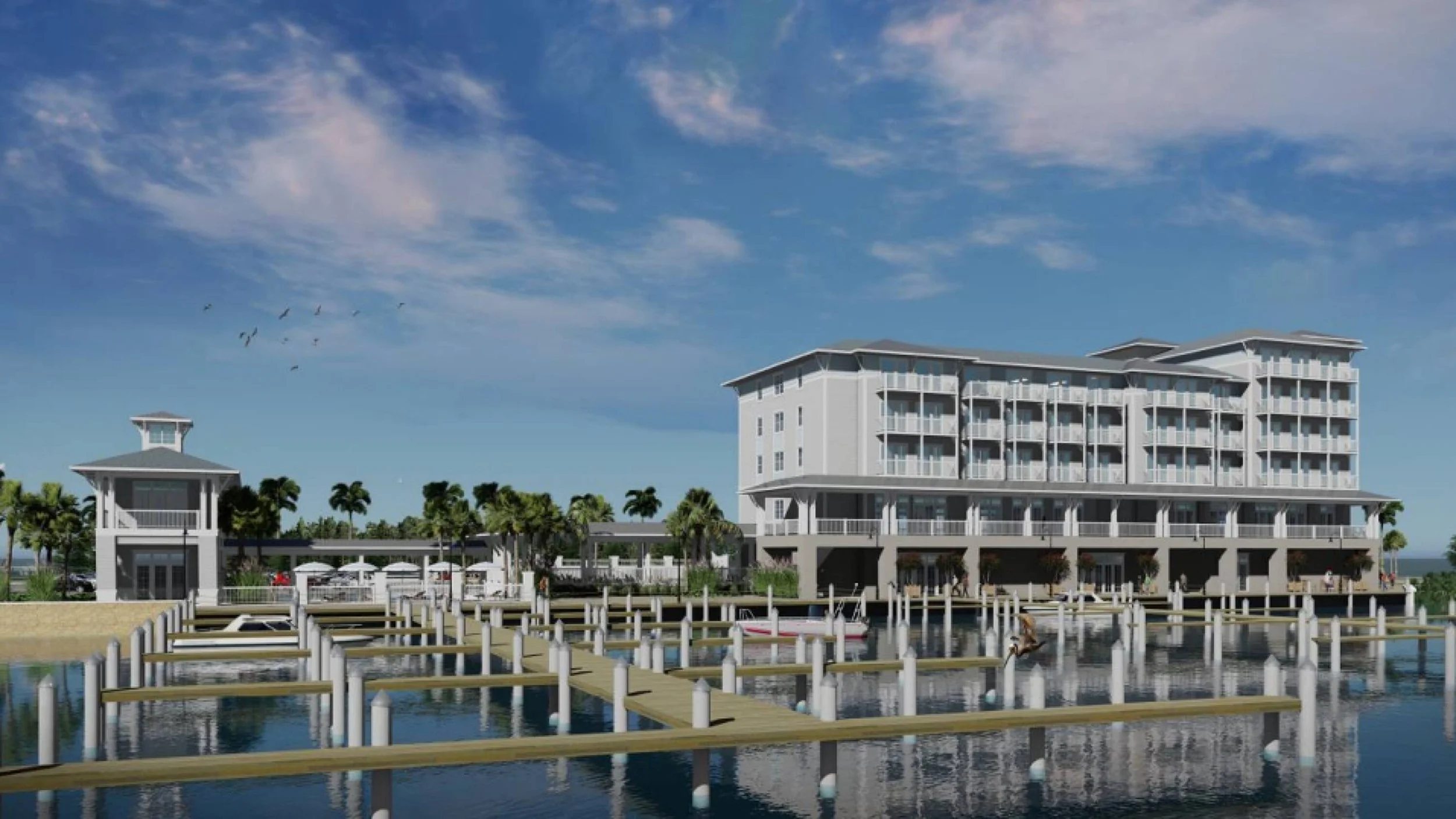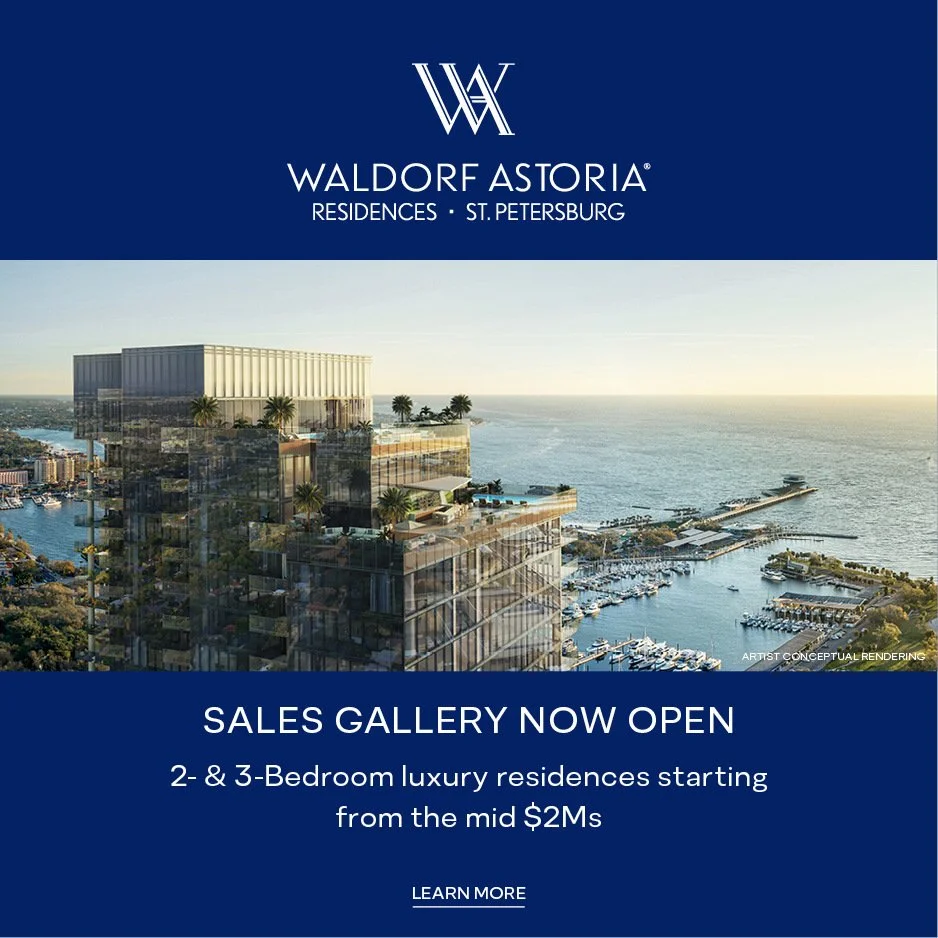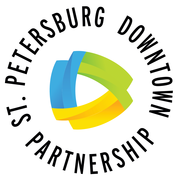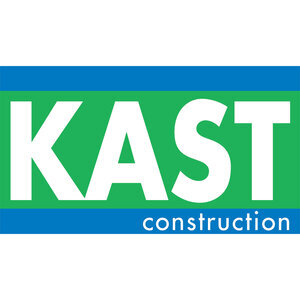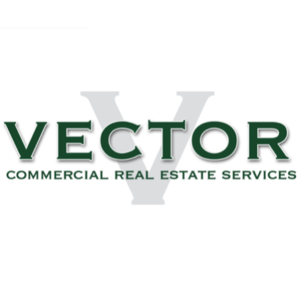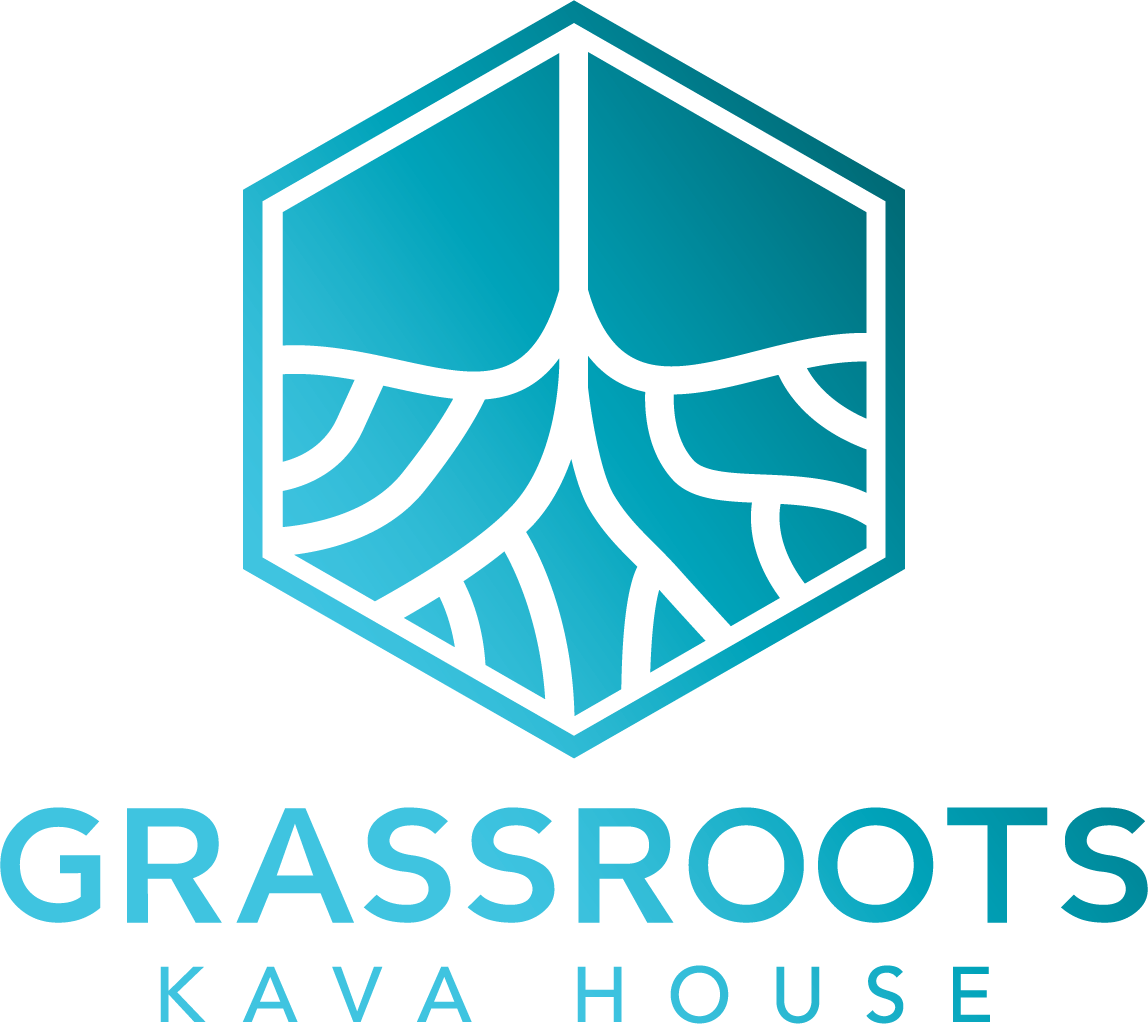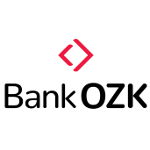Seven proposals revealed for the redevelopment of the 86-acre Tropicana Field site
/Yesterday, the City of St. Petersburg and Mayor Kriseman released seven submissions of the Request for Proposal (RFP) for the redevelopment of the Tropicana Field site in downtown St. Pete.
At a press conference on Tuesday, Mayor Kriseman also reported on recent discussions the City has had with the Rays. Owner Stu Sternberg had pitched a plan to Kriseman in which city would transfer 50 acres situated to the east of Booker Creek to the team at no charge.
Sternberg also requested that the Rays retain 50% of the development proceeds for the remaining 36 acres located west of Booker Creek.
"If we were to accept this, we would have to reject all of the responses to the RFPs," Kriseman said. "Of even greater concern is the moment the city turns control over to the Rays, the city loses all ability and authority to ensure the community’s voice is heard."
The process for the redevelopment of the 86-acre site, which is currently home to the Tampa Bay Rays, has been in discussion for years and began in 2017 when the City contracted planning firm HKS to develop two visioning concepts for the site – one with a Rays stadium and one without it.
In July 2020 the City announced the release of the RFP, which sought out groups seeking to be the master developer for the property. In the RFP, the City outlined their desire to partner with a development team to establish a mixed-use neighborhood that recognizes the diverse and rich culture of St. Petersburg while also implementing principles of Smart Cities, sustainability, and a healthy community.
The City of St. Petersburg also stated in the RFP that it would provide a minimum of $75 million for infrastructure development of the site to be funded through tax increment financing (TIF) funds.
Submissions were due January 15, 2021 and the City received nine proposals. After a preliminary review, two were eliminated for not meeting qualifications.
The City has tapped a diverse 26-person internal committee to review the proposals. The committee is expected to analyze each submission on a set of qualitative and quantitative metrics including job creation, economic development, equity initiatives, sustainability, and health and wellness, among others.
The committee will provide the strengths and weaknesses of every proposal to the Mayor for consideration. From there, the Mayor is expected to shortlist three or four submissions for public outreach and further scrutiny. City Council will be able to provide input at all levels of the review but ultimately the Mayor will select the finalist.
Each of the proposals was required to submit two versions of the submission – one with a baseball stadium and one without a stadium.
Below is a summary of the seven proposals:
Midtown Development
Midtown Development, LLC, as master developer, submitted a proposal titled Creekside, which seeks to rebuild Booker Creek into a citywide destination. The proposal features 30 blocks of new development with a transportation network that aims to reconnect the site to the downtown street grid.
Creekside would include over 10,000 residential units, of which 20% would be affordable or workforce, office space, retail space, as well as 28.5 acres of pedestrian open space. The development would also have a 510-key hotel with 50,000 square feet of conference space.
Paying tribute to the previous African American community on the site, a Heritage Trail would loop along a pedestrian greenway and beside Booker Creek with historical markers and monuments to important events.
Development costs for Creekside are projected at approximately $3 billion and construction would take place between 2023 and 2048. Creekside will incorporate Complete Street principles and will aspire for LEED Silver sustainability standard and WELL building certifications.
Portman Holdings, Third Lake Partners
Portman Holdings, as master developer, and Third Lake Partners, as investment general partner, submitted a proposal to created a 24/7 mixed-use urban environment. The site would contain around 3,500 residential units which would cater to a variety of family sizes and income levels. An ambitious amount of office space is also proposed – between 1.9 to 2.5 million square feet.
If a baseball stadium is required, a 30,000 square feet ballpark could be located in the southwest corner of the property. The site would also have a 400-key hotel with 50,000 square feet of meeting space and a tech-focused research campus for occupation by a larger educational of healthcare provider.
Like Creekside, the Portland Third Lake proposal seeks to reconnect the downtown grid system and would revitalize Booker Creek, which runs through the property. Attention will be given to smart city initiatives and wellness programs as well as the historic context of the site. A potential museum or cultural component could pay tribute and educate the community about the Gas Plant District and the Black community that once thrived there.
Development costs are projected between $2.3 billion and $2.6 billion.
SROA, Holabird & Root, ARGO
Three companies, SORA, Holabird & Root, and ARGO, have teamed up to propose a “forward-thinking, environmentally-friendly, pedestrian-scale mixed-use neighborhood.” The proposal has a heavy emphasis on canals and other water features.
The Pinellas Trail is reimagined as an active transportation and leisure connection between the residential, commercial, civic, and entertainment uses within the site.
A stadium site is located in the northwest corner of the proposal. Other development parcels contain a mix of uses including residential buildings with commercial retail and office buildings with commercial retail. The site would have several hotels along with 100,000 square feet of meeting space. The submission also makes note of a potential baseball museum.
Total development costs were not identified in the submission.
Sugar Hill Community Partners, JMA Ventures
JMA Ventures, as master developer, partnered with Machete Group Inc., as development manager, to form the Sugar Hill Community Partners. The narrative of the proposal, which is one of the more ambitious proposals of the seven, starts with noting how the development “comes with the responsibility of acknowledging the site’s difficult past.”
The proposal envisions a vibrant mixed-use center comprised of multifamily housing, commercial office, retail, a convention center, hotels and a blue tech campus. Including a baseball stadium, the proposal calls for nearly 2,000 residential units along with 1.3 million square feet of office space, 657,000 square feet of tech campus space, hotels, and a 1.1 million square foot convention center. Removing the stadium component results in an increase in residential units, office space, and the growth of the tech campus.
The proposal seeks to remediate the “infrastructure injustice” that occurred with the construction of I-275 which divided the site from the west and south by potentially creating new north-south connections and capitalizing on a potential to remove I-175.
Total development costs are expected to be over $3 billion.
TRS Development Services
TRS Development Services is the development team representative for the group comprised of developers Ryan Companies and Brennan Investment Group. The group has proposed Sky Wave, a mixed-use development featuring 360 affordable townhome units, 350 workforce housing units, and a senior housing community. Sky Wave will also feature a community center and three luxury high-rise condominium towers with a combined 225 units.
A technology park and educational facility would anchor the southern half of the site. If a baseball stadium is kept on the site, the team is proposing renovating Tropicana Field into an open-air ballpark.
Total development costs are estimated to be $475 million; however this does not factor in the renovation of Tropicana Field, costs to construct an intermodal transportation center, or the cost of infrastructure improvements.
Unicorp National Development
Unicorp National Development is proposing Petersburg Park, a mixed-use district that promises to “create a unique destination, designed to strengthen the surrounding neighborhood districts.” Petersburg Park envisions an expanded Booker Creek leading to Central Park and The Basin, an outdoor green area lined with waterfront dining and retail areas. Over 36 acres, or 43%, of the site would be open space.
Petersburg Park would feature 3,000 residential units, a 400-key hotel, along with a 70,000 square foot conference center. The site would also include 155,000 square feet of office space and 312,000 square feet of retail space.
“We are excited about the opportunity in front of us. Our proposal is significantly different than our competitors as our focus is on creating a community and not maximizing density,” said Chuck Whittall of Unicorp in a statement to St. Pete Rising. “We believe that we can develop in a manner that is beneficial for St Petersburg as a whole and create an uplifting halo effect for all the neighbors in the community.”
Total development costs were not indicated in the submission.
Wendover Housing Partners
Wendover Housing Partners is proposing a mixed-use project that focuses on “housing first.” Of the nearly 2,200 residential units proposed for the site, nearly 1,300 are affordable or workforce housing units. The proposal aims to make “downtown St. Petersburg the most affordable urban market in Florida to live in and raise a family.”
The team envisions a mixed-income district. Ground floor retail would line many of the residential buildings and the site would include three potential Class A office buildings with the potential for 1.4 million square feet of office space. Two potential hotel sites could add up to 500 hotel rooms with the potential for an integrated conference center.
On the southwest corner of the site would be a 250,000 square foot trade or industrial campus for a trade school or other educational facility.
Total development costs were estimated at $2.4 billion.
With the seven submissions in hand, the City’s internal committee will begin reviewing the proposals. It will likely take months of discussion and deliberation before the finalists are narrowed down. While the proposals range in ambition, they all promise to help reconnect the Tropicana Field site to the rest of downtown and each proposal has the potential to add new housing units, office space, hotel units, and retail space to the downtown area.
Residents are encouraged to submit public comments on the submissions.
Over the next few weeks, St. Pete Rising will be publishing a more in-depth look at each proposal, so be sure to check back frequently or sign up for our newsletter to be notified when those articles go live.
